
9 minute read
Lived Experience
Peer Support Group
The Peer Support Group is a new addition to EDQ’s lineup of support options and was created in January in response to the scarcity of existing options for clients to connect with other people who also had experience of the recovery process.
Advertisement
Peer Support Group is made up entirely of people with lived experience of an eating disorder. People in the group have a whole range of eating disorders and range from the very beginning stages of seeking support for their eating disorder, all the way to long-term recovery.
Clients can choose to attend on a week-by-week basis, so there is no obligation to attend each session.
The purpose of the group is to foster and support recovery and offer an opportunity to connect with others who are currently in recovery as well. We have created this group based on feedback from our existing clients that it would be nice to have a place to connect with peers, that provides a bit of a break from therapy but is still a supportive and safe environment. The group also provides a support option for those who are on a waitlist for individual counselling or other services, ensuring that motivation to recover is not lost due to lack of support.
The group can share their common experiences and resources and work together to build a safe and supportive community, where they feel comfortable exploring common areas of concern, difficulty, and triumph.
Building or rebuilding trust in others Receiving practical information based on personal experience
to help others Feeling less isolated
Using your experience
Receiving emotional support
From (Charles Drebing, 2016) COMMON BENEFITS Receiving practical support Expanding or changing some of your social network OF PEER SUPPORT GROUPS Gaining insight into how to deal with a common problem
Gaining a greater sense of control over the problem (leading to high rates of active coping and Gaining broader insight into yourself problem solving) and your life
From the program’s beginning as a fortnightly in-person group, we soon switched to a more frequent online meeting. This has proven to be a sustainable option, with Peer Support Group meeting 21 times in its first six months of existence (~ 37hours of contact time). The increased frequency of the groups has been helpful in allowing clients to maintain community connections during a period of forced social isolation. We are also able to run the weekly groups at alternating times in order to accommodate differing schedules.
Opportunity for support and connection. To be part of a Community of people who have had similar experiences.
I struggle with being able to be have to say and hearing what has helped them. Hearing about how other people go through the same stuff that I do, have the same thoughts that I do, and feeling less isolated.
talking to others who get it and really encouraging I think to hear from those a little further along in recovery. open about my eating disorder struggles and I’m able to be more open through this group. I also love hearing what others
To feel less alone. It’s nice
Feedback: WHY DO YOU ATTEND PSG?
Knowing that I have found the group beneficial and supportive motivates me to attend each week. I look forward to attending it.
EDQ’s approach of highly valuing people with a
community. There is a power in hearing someone who is in recovery speak about their own recovery journey that is unlike any other treatment available. The Speaker Program sits alongside the Peer Mentor Program, which offers a longer-term one-on-one opportunity for connection. In later stage recovery i find it hard to connect with friends who have not experienced an ED and look for connection at group with people who have experienced / are experiencing similar things living life / recovery in such a weight / body obsessed society. it’s a very different way of thinking that we have than non-ED people and it’s hard to keep that up when everyone / thing else around us is diet / thin obsessed. Group helps me connect with people who have similar experience to me and motivates me to know I’m on the right track and keep doing what I’m doing in
Speaker Program
lived experience has been recognised globally as a key element of best practice for a holistic approach to mental health.
The EDQ Speaker Program began in 2016, in response to requests from the Royal Brisbane and Women’s Hospital, seeking greater support for those transitioning from hospital into the recovery.
Goals of the Speaker role include: Increase hope in the possibility of recovery Increase understanding that there are many pathways to recovery Explore strategies for recovery Increase community connection In light of the impacts of COVID, the Speaker Programs annual training events and StorySharing workshops were moved onto an online platform for the first time. Speakers continued to share their stories of recovery at inpatient training events and community events via social media and Zoom.
Lived Experience Speaker Maddie filmed several videos for EDQ to share during World Eating Disorder Action Day, which in 2020 took place entirely online for the first time. Visit eatingdisordersqueensland.org.au/eating-disorder-recovery-stories/ to view Maddie’s videos, as well as other Stories of Recovery’
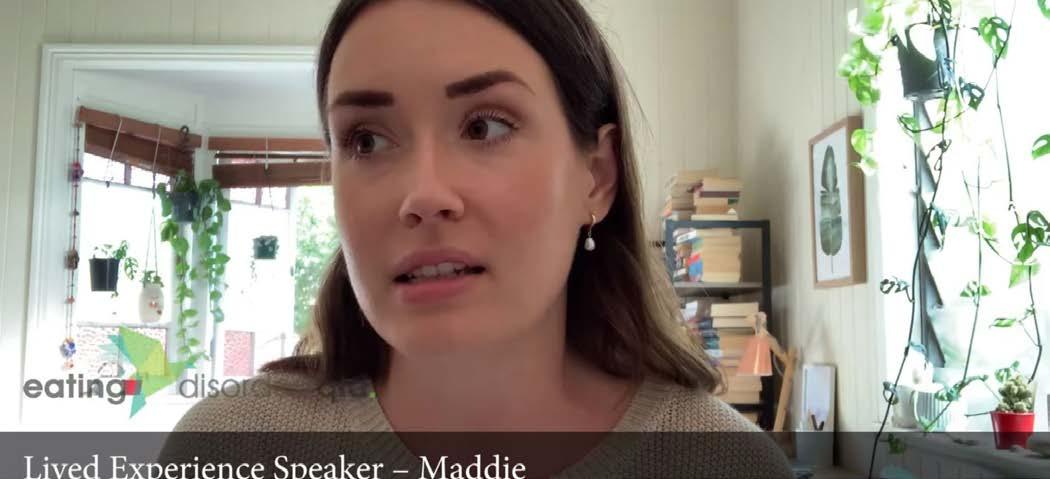
Chloe Bochow has been a lived experience speaker at EDQ for the past 3 years. Chloe is currently studying nursing at university to be a nurse, owns over 100 pairs of socks and was kind enough to shed some light on her experience of being a speaker at EDQ.
Why did you first join the speaker program at EDQ?
C: I first joined the speaker program at EDQ as when I was unwell I had the honour of hearing one of the speakers from EDQ share their story and it was the first time I had heard of someone who was in recovery and it inspired me on my own recovery journey so I told myself when I was well I wanted to be able to share my story and help others not only going through an eating disorder but those working in the eating disorders field and the greater community.
What do you wish someone had told you about the recovery process?
I wish someone had told me that it's okay and normal to struggle and to miss the eating disorder, in my recovery journey especially in the beginning I love that I was building a life worth living and one that was actually bringing me joy but there was a part of me that missed the eating disorder.
What have you learnt about yourself in recovery?
I have learnt a lot about myself in recovery, I have learnt I am brave, creative, kind and loving. I have learnt I really love and enjoy cooking. but most importantly I have learnt that I’m a good person who deserved to be treated nicely and
Chloe and EIP Lisa livestreamed to Instagram for World Eating Disorder Awareness Day 2020, discussing Chloe’s
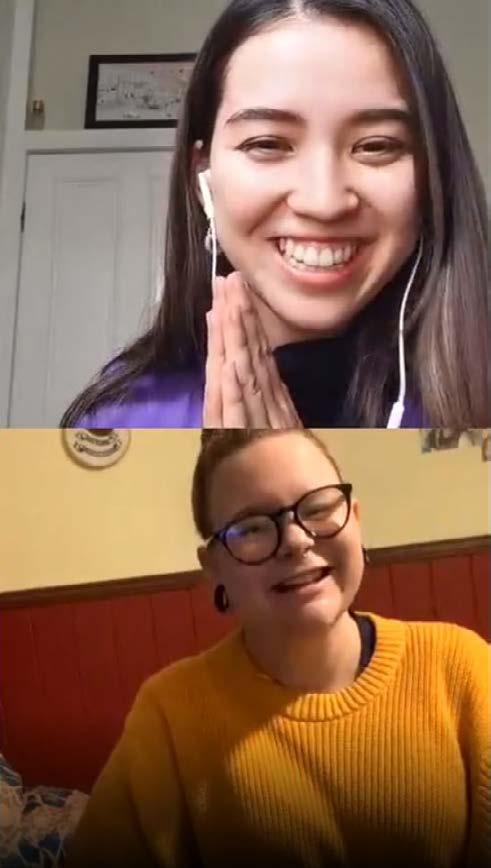
experiences of eating disorder recovery loved especially by myself.
For Body Image and Eating Disorder Awareness Week (BIEDAW) Chloe also responded to questions around body image for the EDQ community:
Do you feel ‘body positive’ all the time? What about ‘body neutral’ or ‘body accepting’?
I don't feel body positive in the traditional sense of being positive of the appearance of my body but instead I'm body positive in the sense I'm positive and love the fact I have a body, and it functions! I have a beating heart, a stomach, arms and legs that allows me to live, eat, give hugs and stand tall.
What have you found influences your body image and how do you manage that?
A big thing that influences my body imagine is being a twin, we are constantly being compared to each other and as we are identical I often think I should look like her because of this, I manage this by reminding myself we are different people and its okay to look different and be individual.
The EDQ Peer Mentor Program (PMP) takes place twice per calendar year and aims to supports people who are recovering from eating issues. In each program a selection of mentors will provide support for the mentee over a period of five to six months; a commitment to regular mentoring contact agreed to by the mentor and mentee for the duration of the program. Mentors are required to attend comprehensive training delivered by our PMP coordinator and participate in monthly one-on-one supervision to provide an avenue to discuss their mentorship and boundaries, ensuring they remain safe throughout the program.
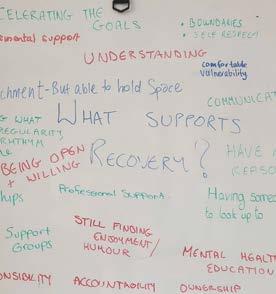
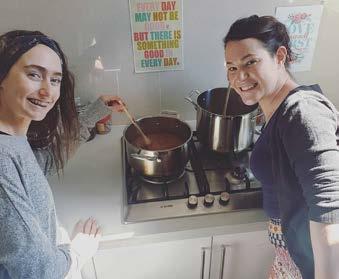
The design and structure of the Peer Mentor Program is based on best practice national and international standards from other mentoring programs. Eating Issues Practitioners Emily and Christophe acted as coordinators throughout the two programs.
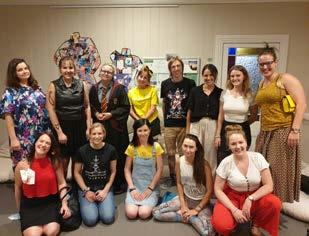
Round 2: July-December 2019
Nine mentors and mentees were matched and commenced the program. Part-way through the program one mentor was unable to complete the program due to personal reasons and their mentee decided not to continue. Another mentee chose to withdraw from the program for personal reasons and their mentor therefore also did not complete the program. Two senior mentors completed the program. Completion rate of matched pairs: seven of nine.
Round 1: February-July 2020
Seven mentors and mentees were matched and commenced the program. Key differences in the running of this round were the having to deal with challenges related to COVID-19 and as result using the video conferencing platform Zoom to conduct the events (except Meet and Greet). Two senior mentors completed the program. Completion rate of matched pairs: five of seven. 143 HOURS
At the end of each program we receive feedback from our mentors and senior mentors regarding their own wellbeing and recovery in the context of mentoring relationships. This is what some of our mentors and senior mentors reflected when asked about their learnings and perceived benefits of being a part of the program:
Mentee:
“A really great experience! Learnt a lot about myself and trusting others. Was challenged by my mentor weekly for recovery and to be a better person in society”.
Mentee:
“The chief benefit of the program for me has been to have supportive person to talk to who understands the issues that I’m going through. Hearing how my mentor navigated similar issues and having her check in with me made me feel very supported”.
Mentor:
“I found the program to be a positive experience. As a mentor I believe I gained a greater insight into myself and my ongoing eating disorder recovery. I think it was run well in the face of a very disruptive year and maintained good community and connection despite these difficulties (Covid19, 2020.)”.










